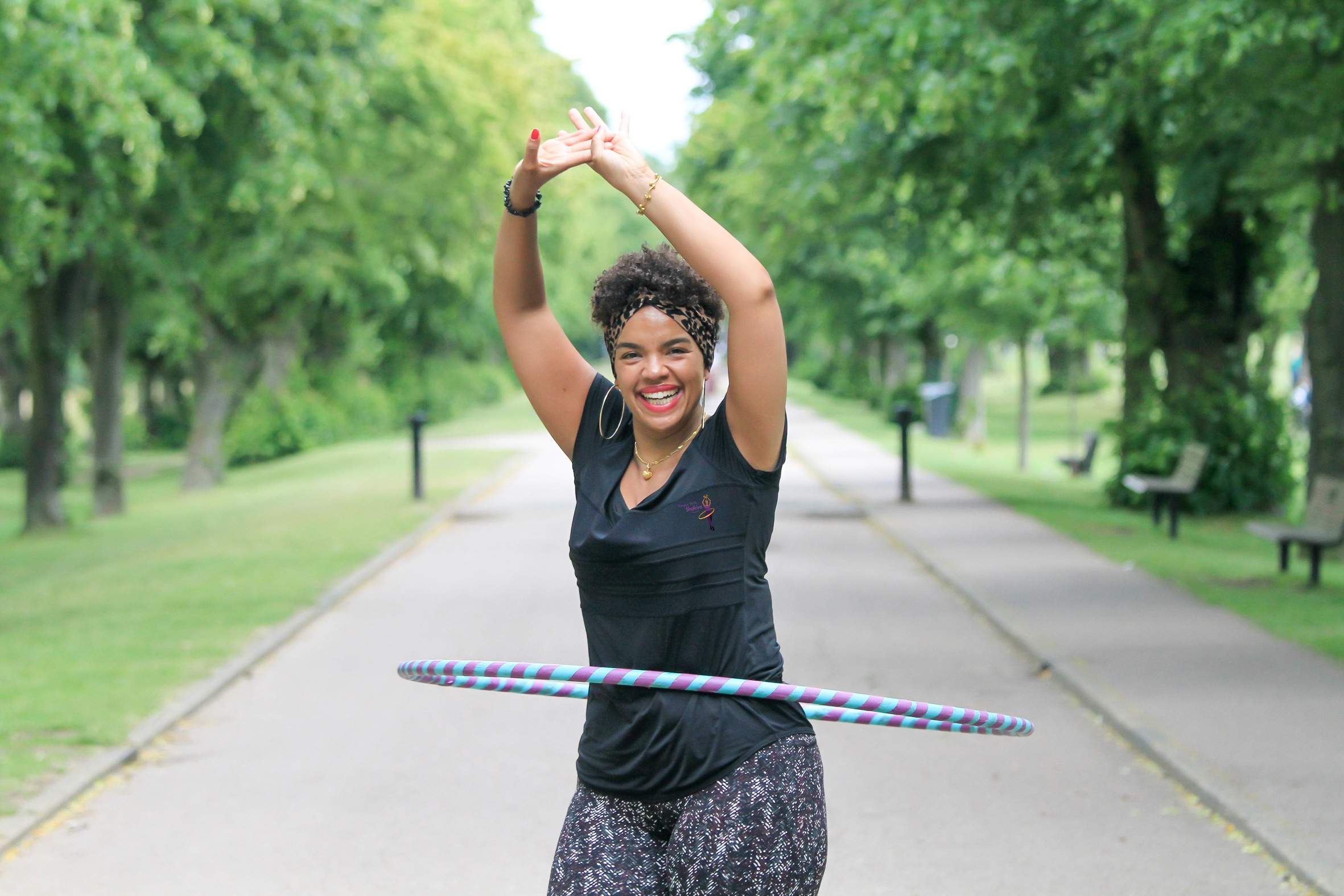
Shakira Taylor is a qualified Personal Trainer and HulaFitness Instructor working within the fitness, health and wellness industry for over seven years teaching a variety of exercise classes to both adults and children. She specialises in empowering people to achieve weight loss, build confidence, rebalance mindset and find the right nutrition to meet their needs.
She is passionate about small business, a champion for change and diversity in all industries and enjoys helping others to feel motivated to move and achieve in their lives.
In one of your posts, you mentioned of experiencing more racism upon entering the wellness business. Has this experience changed your opinion of the industry? Have you had any expectations of it before you’ve started growing your business there?
Before I began my own business in fitness and wellness I expected the industry to open and welcoming no matter your gender and ethnicity, however, I did find it to be a completely different experience. Starting any business comes with its challenges, obstacles and unexpected surprises to say the least! For me as a curvier woman in her 30’s, it was the lack of acceptance by the fitness industry.
Prior to starting my own business, I did not realise how competitive the industry was and how there was a massive under-representation of female fitness professionals who are in their 30’s, bigger than a size 12 and from a non-white background. I definitely felt I had to work harder to prove my abilities to be able to run classes and even gain clients.
These experiences have given me the motivation to continue in my business, 5 years later and help other Females do the same.
As a Black woman and wellness entrepreneur, do you feel that pressure on women is tougher than on Black men?
It is very important for me to be recognised as a mixed-race woman, as my mother is White English and my father is Jamaican. Since secondary school age (back in ’90s) I have championed on how important it is for me to be recognised as a mixed-race woman rather than a Black woman as if you call me a Black woman you can also call me a White woman which people never do!
It is unfortunate that I have to be judged on my colour rather than my ability and I do believe for women of colour in the wellness space it is harder for us to be recognised compared to Black Men. I believe this as unfortunately there tends to be a stereotype of Black men being either a Personal Trainers or in manual trade, so there is no surprise when you meet a male Black wellness entrepreneur.
Since June events, have you seen an actual shift in the wellness industry against racism? Did actions meet the words, expectations or intentions?
I do believe we are starting to see a shift as more open and honest conversations are now taking place with people from all ethnic groups which is vital if we want to see permanent change. It is great to see more online wellness events are including a more diverse line up of speakers, as that was one of my main issues with the industry as I never truly got to see a woman that looked like me.
However, I think the real test will come when we resume live events again to see if the change will happen then. Will we see a more diverse panel of knowledgable experts at these events? Or will we continue to see people of colour being used more for the entertainment value or to deliver content?
What are the key questions that every wellness industry representative, insider, an entrepreneur has to ask herself and himself when starting or changing the business to be inclusive and diverse?
- What am I representing
- Who am I trying to attract
- Who am I trying to help
- Language you use in marketing
- Music you play in classes
- Are you willing to listen to your audience
- Brands and partnerships you work with
- Are you adding value?
- Are you aware of the different cultural needs and perceptions of wellness, along with Cultural barriers?
What are the key resources you’d point people to educate themselves? Books, websites, podcasts, films, people.
Here are just a few I’d recommend:
- Website: https://blacklivesmatters.carrd.co/
- Books: Why I’m No Longer Talking To White People About Race by Reni Eddo Lodge, We Need To Talk About Race by Ben Lindsay
- Netflix: Time: The Kalief Browder Story; When They See Us; 13th
- Social Media: @blackmindsmatteruk @blackbusinessnetworkuk
- Podcast: Slay in Your Lane – Yomi Adegoke and Elizabeth Uviebinene
If you were put in charge of the Global Wellness Industry, what would be the first changes you’d implement?
Wow, that is a tough one! Talking to brands and publications about representing people of colour equally alongside all ethnic groups. Increasing diversity through branding representing children, teenagers and adults.
Liaising with the sports industry to get action to actually take place instead of actionable awareness. Liaising with the gym industry about the divisions amongst women and men of all colours whilst training in the gym, to create safer and welcoming environments for women to train in.
